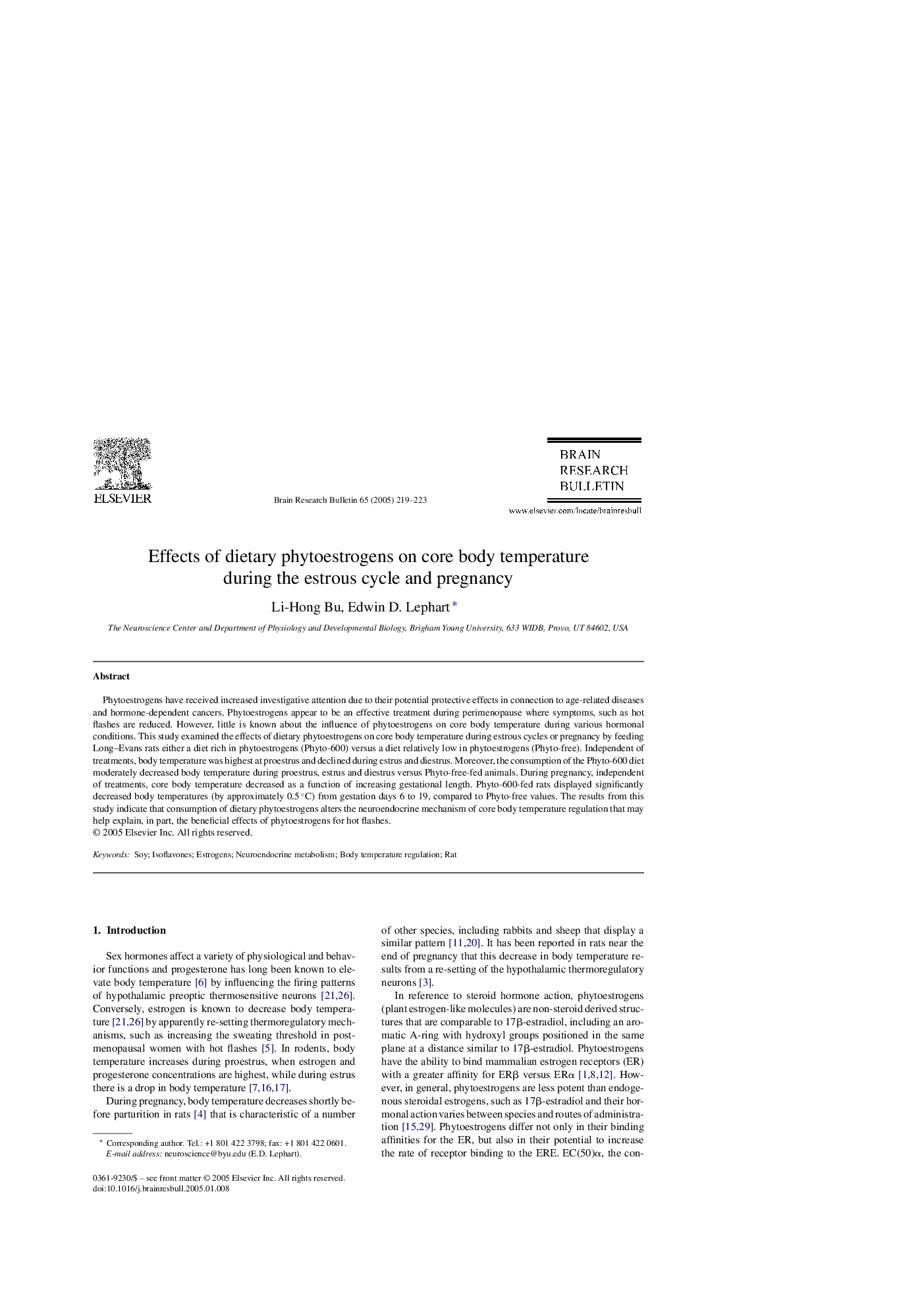| Article ID | Journal | Published Year | Pages | File Type |
|---|---|---|---|---|
| 9409472 | Brain Research Bulletin | 2005 | 5 Pages |
Abstract
Phytoestrogens have received increased investigative attention due to their potential protective effects in connection to age-related diseases and hormone-dependent cancers. Phytoestrogens appear to be an effective treatment during perimenopause where symptoms, such as hot flashes are reduced. However, little is known about the influence of phytoestrogens on core body temperature during various hormonal conditions. This study examined the effects of dietary phytoestrogens on core body temperature during estrous cycles or pregnancy by feeding Long-Evans rats either a diet rich in phytoestrogens (Phyto-600) versus a diet relatively low in phytoestrogens (Phyto-free). Independent of treatments, body temperature was highest at proestrus and declined during estrus and diestrus. Moreover, the consumption of the Phyto-600 diet moderately decreased body temperature during proestrus, estrus and diestrus versus Phyto-free-fed animals. During pregnancy, independent of treatments, core body temperature decreased as a function of increasing gestational length. Phyto-600-fed rats displayed significantly decreased body temperatures (by approximately 0.5 °C) from gestation days 6 to 19, compared to Phyto-free values. The results from this study indicate that consumption of dietary phytoestrogens alters the neuroendocrine mechanism of core body temperature regulation that may help explain, in part, the beneficial effects of phytoestrogens for hot flashes.
Related Topics
Life Sciences
Neuroscience
Cellular and Molecular Neuroscience
Authors
Li-Hong Bu, Edwin D. Lephart,
